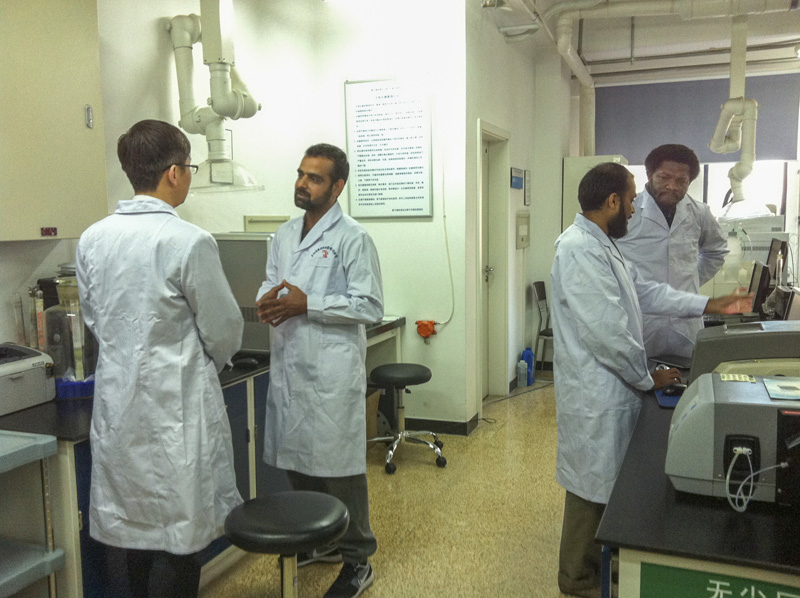Factors that have attracted Chinese science students to US universities - scholarships, high-tech laboratories, international conferences and academic exchanges - are now drawing foreign students to China, especially from countries along the Belt and Road Initiative routes.
Victor Dike of Nigeria is three years into a four-year PhD program at the Chinese Academy of Sciences' Institute of Atmospheric Physics. He signed up for the program after a short stint as a visiting scholar in 2013.

CAS-TWAS Centre of Excellence for Green Technology has adopted 45 TWAS overseas students since its founding in 2013, among them 33 are financially supported by the center. (Image by CAS)
"As a climate scientist, I have opportunities to travel around the world," he said. "But if I could advise somebody who is going to study abroad, I would say China, because the research environment here is really good."
Imoulan Abdessamad of Morocco, a post-doctoral student who specializes in fungus research, said he was swayed by the nation's progress in DNA sequencing.
"If you want to find new fungi species, you need to sequence DNA. In my country, I can't do it because it's too expensive and takes too long," he said. "Here in Beijing, if I send the sample away today, I can get the result tomorrow, so I can do any experiment I want."
Through his work at the CAS Institute of Microbiology, Abdessamad has identified two new species from samples taken from the Qinghai-Tibet Plateau and has published his discoveries in scientific journals.
Yao Yijian, a PhD supervisor at the Institute of Microbiology, said, "For most students from developing countries, we can provide the research facilities, ideas, environment and platform they have no access to (at home).
"When they return to their own countries, I believe they still have emotional connections to China and to the institute," he added.
Adewole Adetoro Ajala, a Nigerian third-year PhD student at the Centre of Excellence for Green Technology, a joint project in Beijing between the CAS and The World Academy of Sciences, said that "the Chinese are not only interested in training you, but also care about building collaboration".
China is quickly building links with nations along the proposed Silk Road Economic Belt and 21st Century Maritime Silk Road, which form a major initiative aimed at boosting connectivity between Asia, Africa and Europe.
In 2013, the CAS launched the President's International Fellowship Initiative, a project that offers full scholarships to 200 overseas PhD candidates a year, which has led to students from developing countries gaining urgently needed knowledge and skills.
The CAS has established five bases for overseas students from Belt and Road countries at affiliated research institutes, covering a wide range of research - including climate change, clean energy, biotechnology and applications for space technology in disaster relief and water safety.
"Our research fields meet the needs of many developing countries, so our reputation is rapidly growing," said Wei Yuansong, deputy director of the CAS-TWAS Centre of Excellence for Water and Environment. (China Daily)

